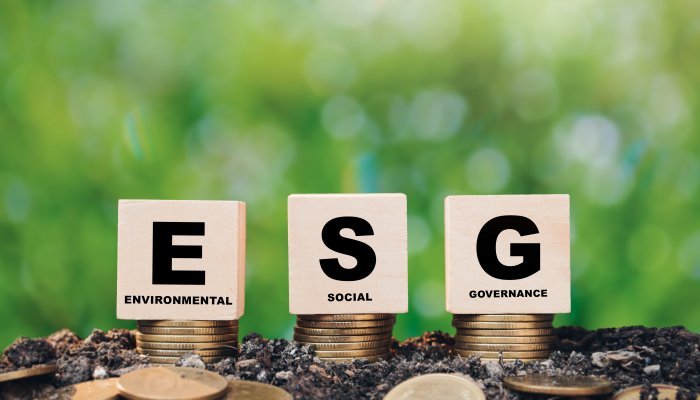Corporates highlight ESG credentials in their reporting. But the questions remain: To what extent should we look to the private sector to address much-needed societal changes? How fit for purpose is ESG as a mechanism for achieving or measuring such changes?
ESG issues were first mentioned in the 2006 United Nations' Principles for Responsible Investment (PRI) report. But, in South Africa, what's now known as ESG reporting has been happening long before the term was popularised.
As Anne Cabot-Alletzhauser, the practice director: responsible finance initiative at GIBS notes, in South Africa, the earliest examples of the “E” leg first appeared as far back as the 1970s. Companies were responding to growing stakeholder concern about environmental impact, particularly in the mining, oil and gas sectors, following public catastrophes. Post-apartheid, South African business needed to re-establish trust with international markets. Corporate governance was prioritised and the Institute of Directors of South Africa established the King Committee on Corporate Governance, which created codes for responsible and ethical governance, positioning South Africa as a global leader in such standards.
In 2004, the JSE launched its Socially Responsible Investment (SRI) index, shifting the spotlight to social issues, enabling investors to benchmark companies responding to social investment and transformation imperatives through its codes of best practice.
As the “E” in ESG was prioritised globally, the JSE became the African first stock exchange to issue a public consultation paper, the JSE Sustainability Reporting Standards, promoting transparency and best practice disclosure for listed companies.
Current state
In 2023, the Sanlam ESG Barometer Report was released, ostensibly the first South African study evaluating the state of ESG and assessing how companies are changing to deliver improved ESG outcomes.
It says ESG investments are expected to reach $53 trillion, close to half of the world’s institutional assets. While South African companies are ahead in delivering on social aspects of ESG, they lag in managing ESG risks and making ESG disclosures.
ESG reporting vs investing
Cabot-Alletzhauser suggests thinking of ESG from two different stakeholder perspectives: how it relates to corporate reporting, and how it potentially affects investment decisions.
ESG reporting is merely an extension of sustainability reporting that corporates began to see a greater demand for from stakeholders, she says. “This was about the realisation that corporates don’t live in financial vacuums. There are environmental, societal and governance or regulatory issues that have material impact on their financial sustainability, and companies need to be able to assess and strategise appropriate responses.”
Similarly, a business’s operations may affect the society around them, whether positively or negatively.
“This additional consideration is what is termed ‘double materiality’ – the kind of insights that stakeholders to understand to determine how vulnerable a company might be to consumer or regulatory backlash," says Cabot-Alletzhauser.
“What makes discussions around ESG complicated is that certain parties simply want information to assess potential risks to companies’ future sustainability, while others see ESG reporting as vital for tracking how responsive companies are to addressing broader systems-change demands.”
This raises several important questions. To what extent should we expect business to address societal or environmental concerns? How well do we understand the long-term, knock-on impact of regulatory constraints on businesses? Whose interests do these actually serve? How fit-for-purpose is the private sector to effect societal change?
Locating ESG in the bigger picture
Dr Jill Bogie, director of GIBS Sustainability Initiatives for Africa, says ESG is merely “a trigger” to deal with a broader agenda.
She believes ESG must be considered within a bigger conversation around how organisations need to adjust their business models and strategies to deal with the imperatives and key challenges of the 21st century. This ties in with the Sustainable Development Goals, South Africa’s National Development Plan (NDP) 2030 and the Africa Strategy 2063.
“ESG compliance and reporting is going to shift the needle a little bit, but it’s not going to result in transformational change,” she says.
When it comes to the broader focus around sustainability and strategy, Bogie says GIBS is focused on three strategic imperatives: social justice, climate justice, and digital justice.
The questions we need to ask, she says, include: How do we use ESG as a leverage point to change the way that corporates do business – their business model and value proposition for their clients? How do they make their money while also making a social and environmental contribution, not just doing less harm?
ESG investing
ESG as it relates to investment decisions is Cabot-Alletzhauser’s focus. She says many purportedly ESG financial investment products on the market are “basically marketing puffery". Her job – evaluating such offerings – is complicated for several reasons.
Assessment relies on the extent to which corporations provide comprehensive ESG data and embed ESG into their overall strategy. “More importantly, we’re only beginning to understand what a limited tool ‘ESG investing’ is for creating societal change,” Cabot-Alletzhauser says. “It’s one thing to incorporate considerations of ESG factors into evaluations of companies (asset managers have been doing that for ages). It’s another to expect investor behaviour to drive massive societal changes unless accompanied by mandated legislation.”
Sureka Asbury, the head of Advanced Research & Insights Lab; Discovery Specialised Investment Services and a GIBS MBA alumna, notes it’s difficult for investment professionals to measure ESG investment product claims and to gauge what’s legitimate and what’s marketing spin.
In South Africa, Asbury says, the biggest uptake of investments focused on environmental and social goals to date has likely been through the private equity space, largely driven by development finance organisations and impact investment funds.
Although unlisted companies have no requirement to report ESG data, impact investors have more direct control through private investments than listed ones.
However, Asbury says, ESG has become more relevant across the whole investment spectrum. “Every fund manager I speak to talks about ESG now and how they bring it to the investment process,” she says. “But, if you speak to most financial advisors, it’s still seen as a financial trade-off. They think investing in something sustainable means taking a hit in financial returns.”
Cabot-Alletzhauser says that perception is flawed because, theoretically, a comprehensive sustainability programme should lower a company’s risk profile and, as such, one’s investment should achieve a better risk/return profile. “But creating better corporate sustainability doesn’t always translate into better returns on a short-term basis because market participation is by different types of investors looking for opportunities overlooked by other investors.”
The Sanlam ESG Barometer Report suggests company management teams and boards focus on ESG aspects that make the most business sense, noting “when they are able to focus on the most material issues they will outperform financially”.
What about so-called ESG funds?
Asbury says, rather than investing or disinvesting based on ESG measures, many funds in South Africa maintain existing stakes in a company, but implement shareholder activism to influence change internally if businesses are not measuring up in terms of ESG.
For example, Old Mutual, named Best ESG Responsible Investor in Africa for 2021, uses proxy voting on company resolutions on behalf of clients to influence companies’ operations and ensure good governance (for instance, voting against election of directors where there are concerns relating to independence, lack of diversity on the board or directors’ lack of skills on climate-related issues).
ESG controversy
Asbury says while the response to ESG has generally been positive within the investment community, more recently there’s been criticism from some quarters. For example, since 2022, Republicans in the US have been vilifying investment firms such as BlackRock and Vanguard Group because of their efforts to lead clean energy investments, which GOP lawmakers have called a “left-wing social priority”.
In South Africa, where listed companies are encouraged by the JSE to report on ESG measures and there’s a drive from all sectors of societies to improve social outcomes such as reducing poverty and unemployment, Asbury believes companies that don’t prioritise ESG will become less attractive investment options, attracting lower levels of customer and employee loyalty.
The missing ‘S’
While global ESG deliberations have focused predominantly on the environmental aspect, in South Africa, there’s recognition that there cannot be an exclusive focus on net-zero carbon emissions – the social aspect of ESG must be included.
Cabot-Alletzhauser says the challenge for African nations is that “it would be untenable for a singular focus on climate change to supersede the myriad of other social and developmental issues that confront the continent”.
South Africa was the first Global South country to insist (at COP26 in 2021), that considerations on addressing climate change demand a "just transition" roadmap.
Is ESG driving change?
“For an investment strategy to affect societal changes, such as global warming or inequality or meeting SDGs, the industry would have to experience a massive culture change – to say nothing about the changes required to the investment process,” says Cabot-Alletzhauser. “For example, we would have to totally change the benchmarks investment managers use. There would need to be embedded targets for the companies in a portfolio, which would elicit a completely different form of reporting.”
Currently, within the investment community there isn’t an agreed framework for assessing the impact of an investment. Without this, measurement remains impossible.
Cabot-Alletzhauser believes GIBS has a massive responsibility as a business school to help the leaders of tomorrow to understand the consequences of actions that are either taken or not.
“These debates are now integral to any MBA education,” she says. “Importantly, they’re still very much in their infancy. Effective research into the more problematic debates that ESG raises is crucial. We need to emphatically move away from discussions that are simply emotive (Save the planet) to a proper assessment of what changes are realistic to make and provide ‘biggest bang for buck’. For the most part, GIBS is dealing with established companies. We need to ask: how can they be nudged in the right direction (whatever that may be) without undermining their long-term financial stability?”











